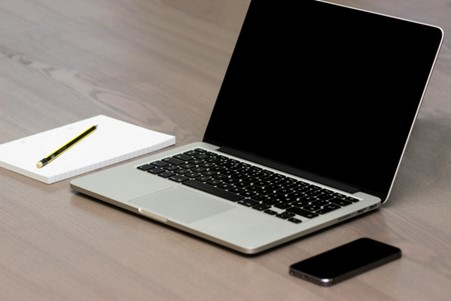
As a small business owner in Melbourne, finding cost-effective solutions without sacrificing quality is crucial, especially when it comes to tech investments like laptops. Purchasing a used laptop can be a wise financial decision, allowing you to get more bang for your buck. However, navigating the used tech market can be fraught with pitfalls if you’re not armed with the right knowledge. This guide provides a step-by-step approach to help Melbourne’s small business owners make informed decisions when buying used laptops or desktop PCs, ensuring you invest wisely and avoid common tech traps.
Establish Your Tech Needs

Defining Your Laptop’s Purpose
Before diving into the used laptop market, pinpoint exactly why you need a laptop. Is it for everyday business operations, high-end gaming, or casual web browsing? The intended use will significantly influence the specifications you should look for. For instance, a laptop for gaming should boast a robust GPU, while one for business might prioritize battery life and reliability.
Setting a Realistic Budget
Determine your budget early on to streamline your search. Used laptops come in a broad price range, and setting a budget helps avoid overspending while focusing your search on the best options within your price range.
Inspecting the Laptop’s Physical Condition
Exterior and Build Quality
Inspecting the laptop’s physical condition is crucial. Look for any visible damage, such as cracks, dents, or excessive wear, and check the hinges for integrity. A well-cared-for laptop often indicates a conscientious owner, which can bode well for the laptop’s internal condition.
Keyboard and Touchpad Functionality
The keyboard and touchpad are your main interfaces with the laptop, so they must function flawlessly. Test every key and the touchpad’s responsiveness to ensure they meet your needs.
Screen Quality Check
Activate the laptop to evaluate the screen. Look for any signs of dead pixels, discoloration, or flickering, and make sure the brightness levels are adjustable. Screen issues can be expensive to fix, so it’s best to verify this early.
Port Functionality
Examine all the laptop’s ports (USB, HDMI, audio jack, etc.) to ensure they work correctly. Faulty ports can significantly limit a laptop’s functionality and lead to additional costs.
Assessing Battery Life and Health
Battery Performance Inquiry
Ask the seller about the battery’s lifespan. An aging battery may not hold a charge effectively. Test the battery life yourself, as replacing a laptop battery can be costly.
Battery Health Assessment
Utilize available software tools to check the battery’s health. A good battery should retain most of its original capacity, indicating whether a replacement might be needed soon.
Evaluating Internal Components

Processor Power
The processor is the heart of the laptop’s performance. Verify the processor type and speed, comparing it with current models to ensure it meets your needs.
RAM Requirements
RAM is crucial for multitasking. Make sure the laptop has enough RAM for your tasks, with 8GB as a general minimum and 16GB recommended for more intensive applications.
Storage Solutions
Check both the type and capacity of the laptop’s storage. SSDs (Solid State Drives) offer speed and reliability over traditional HDDs (Hard Disk Drives), and ensuring sufficient storage space is vital for your needs.
Graphics Card Considerations
For gaming or graphic work, the graphics card (GPU) is essential. Verify that the laptop has a suitable GPU for your needs, whether it’s integrated for general use or dedicated for more demanding tasks.
Software and Operating System Verification
Pre-installed Software Audit
Review any pre-installed software on the laptop, ensuring it’s free of bloatware or malicious programs. A clean install of the operating system is often a good sign.
Operating System Legitimacy
Confirm the operating system’s authenticity and license. Genuine software is crucial for receiving future updates and support.
Researching the Seller
Seller Reputation Analysis
Investigate the seller’s credibility. Look for customer reviews and feedback to gauge their reliability and the quality of their products.
Engaging with the Seller
Don’t hesitate to ask detailed questions about the laptop’s history, reasons for selling, and any past repairs or issues. Transparent sellers are likely to provide comprehensive answers.
Conducting a Thorough Laptop Test
Comprehensive Performance Check
Before finalizing the purchase, conduct an extensive test of the laptop. This includes running various applications, connecting to Wi-Fi, and checking audio and video capabilities.
Hardware Diagnostic Tools
Use diagnostic software to examine the hardware’s condition. These tools can uncover hidden issues, providing an additional layer of security in your purchase decision.
Upgradability and Future-proofing
Exploring Upgrade Potential
Some laptops offer easier upgrade paths for RAM or storage, extending their useful life and boosting performance. This flexibility can be a significant advantage in your decision-making process.
Upgrade Costs
Consider any potential upgrade costs. Sometimes, the total cost of upgrades can approach the price of a new laptop, so weigh these factors carefully.
Market Price Comparison

Fair Price Evaluation
Research the market value of the laptop model you’re considering. Compare prices across different sellers to ensure you’re getting a fair deal.
Accounting for Additional Expenses
Remember to factor in any extra costs, such as new batteries, chargers, or essential software, into your overall budget to prevent any surprises.
Ready to Find Your Perfect Used Laptop in Melbourne?
Buying a used laptop can be a savvy financial decision for Melbourne’s small business owners, provided you do your due diligence. If you’re seeking reliable, cost-effective tech solutions for your business or personal use, we’re here to assist. Our selection offers great value and performance, ensuring you make an informed and beneficial tech investment for your business needs.
Contact us to explore our range of high-quality, affordable used laptops tailored to support Melbourne’s dynamic small business scene.

